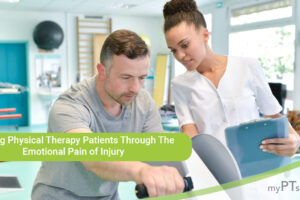Want a satisfying career spent helping others? It might be time to take a look at allied health careers. If you consider a career as an allied health professional, there are great motivations to help this excellent career choice. The pay is lucrative, the field is growing, and you don’t always need a master’s degree. The U.S. Bureau of Labor Statistics states that 9 out of the 20 fastest-growing occupations between now and 2026 will be allied health roles. It is an excellent time to consider the importance of allied health and why this career choice might be the one for you.
What You Should Know About Allied Health
What Is Allied Health?
Allied health professionals use science and evidence-based techniques to diagnose, evaluate, and treat acute and chronic conditions. The professionals also promote wellness and preventative medical practices. Allied health is non-physician and non-nurse roles.
Those who work in allied health perform a variety of responsibilities. Some professionals work in labs, others in the administration of health care facilities, emergency care, or other types of patient care. Those who work in allied health specialize in a particular skill set. Examples of allied health professions include:
- Physical therapy
- Occupational therapy
- Respiratory therapy
- Sonography
- Dietetics
- Speech-language pathology
- Medical assistant
- Medical laboratory technician
- Phlebotomist
- Coding specialist
The Benefits of Being an Allied health professional
Allied health is rewarding both personal and financial. Along with career choices, allied health offers unique benefits that attract people to the allied health profession. Here is a sampling of the advantages associated with being an allied health professional:
- High job satisfaction. Ensuring the good health of people is a satisfying way to earn a living. It offers the rare opportunity to impact someone’s life significantly.
- Job security. Because health care is a necessity, the industry is well-established and constantly growing. As long as people need care, jobs are available.
- Flexibility. Allied health jobs are flexible. The training for allied health is relatively quick, and there are a variety of sub-fields. There are health care jobs near every population center.
Why Allied Health?
Allied health is accessible with a shorter training process than becoming a physician or a nurse. It also makes financial sense to train through a more concise program and get right into the workplace. Allied health programs tend to be less expensive when compared to traditional college courses. If getting into the health care field without putting in the time and money required for a medical or nursing degree appeals to you, this might be a great career option for you.
Interested in Finding a Great New Allied Health Job?
Let the professional recruiters at myPTsolutions help connect you to exceptional allied health positions. Browse through the current job openings at myPTsolutions for the latest allied health job openings to find exciting jobs.




